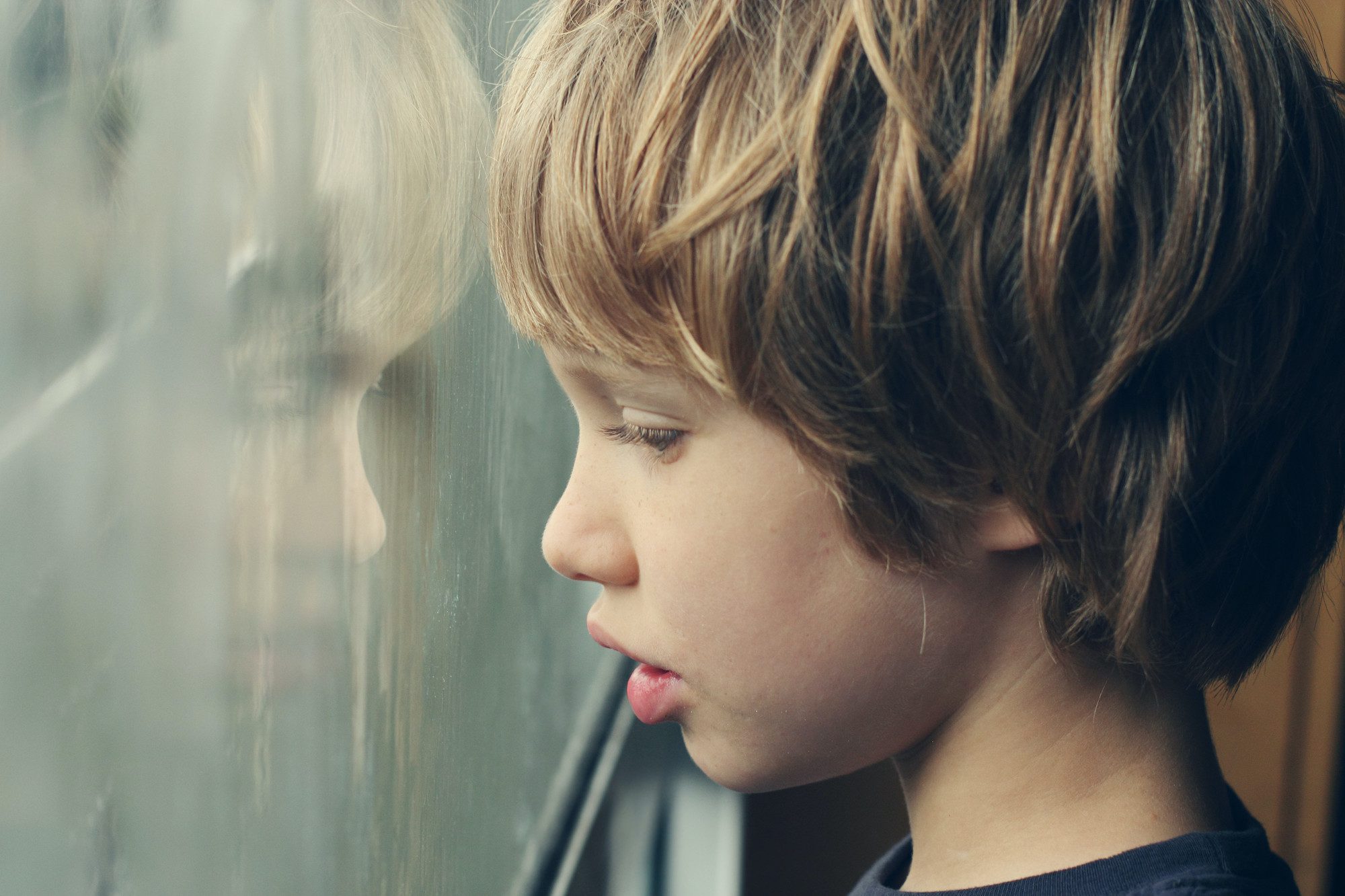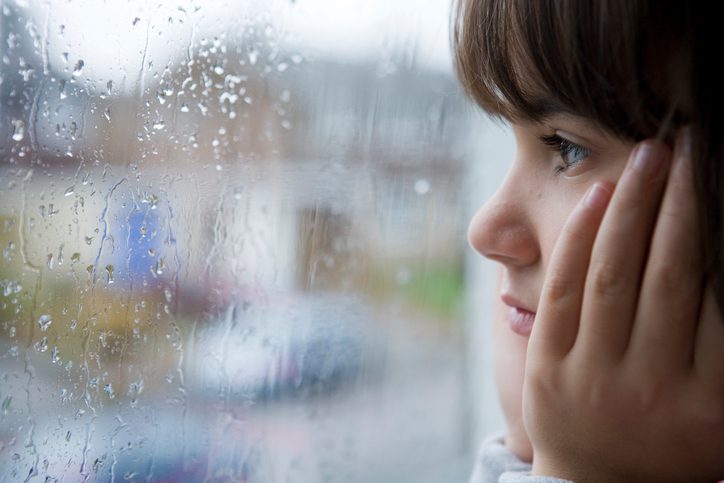Coping With Disaster Fatigue: A Guide for Families

Posted in: Parenting Concerns, You & Your Family
Topics: Hot Topics
Mother nature has not been easy on us, lately.
We have shouldered one weather-related crisis after another. The United States has had a record number of wildfires, tropical storms, derechos, and tornados. And these disasters do not include other serious weather-related concerns, like record-breaking heat, droughts, floods, or mud slides.
Thousands of families have personally experienced these disasters, while those outside the imminent dangers have seen or heard daily accounts on TV or through digital media.
Making things worse is that we are in the midst of a pandemic that has already taken over 200,000 American lives. Most parents and children are physically isolated from family and friends, and uncertain about the health of our loved ones. All this is embedded in an economic downturn and social unrest, with many concerned about systemic racism, healthcare and economic disparities, threats to obtaining healthcare coverage, and the impact of climate change.
Many families, particularly those directly impacted by weather events, are suffering from “disaster fatigue.” While not a bona an actual diagnosis, this is a condition characterized by physical and emotional exhaustion. Emotionally, many are experiencing anxiety, stress, and loss of sleep.
Many parents affected by weather events have concerns about the following:
- Taking care of kids, especially younger kids
- Worrying about older kids who have left home for work or college, and are on their own
- Caring for other family members, such as older parents or those with chronic illnesses
- Less focus and productivity at work, whether working remotely or out of the house
- Not seeing family, friends, and peers, resulting in isolation and loneliness
- Excessive worry about housing, money, schooling for kids
- What to do in the case of evacuation – it’s hard enough without a pandemic, but where do we go to be safe from both a weather disaster and a virus?
With so many worries, how can you support yourself and your family? We offer some guidance below.
Coping With Disaster Fatigue: A Guide for Families
Guide for Taking Care of Yourself
Parents and other caregivers, you can best help your kids and teens if you take care of yourselves. Like the flight attendant that says, “If the pressure drops, put the oxygen mask on yourself first, before helping others.”
Here are some ways to manage your disaster fatigue:
- Control your anxiety. We all know anxiety is contagious. Your kids will pick up on this, and it may impair your ability to manage your own needs and help your kids. Find ways to diminish your anxiety, such as techniques listed below.
- Practice self-care. Use whatever works to diminish your anxiety and replenish your energy, such as yoga or meditation. Be sure to get enough sleep, exercise, and maintain a healthy diet.
- Use social support. There is no better way to improve your mood, stress, and re-energize than connecting with your spouse, partner, friends, family, community, and spiritual leaders.
- Get good information, but not too much. For any possible weather condition, get the best possible facts, but beware of flooding yourself with digital media. Turn the smartphones and other screens off for a while.
- Take some time for yourself. You have so much to do – caring for your kids, maintaining the home, keeping everyone safe, working remotely or out of the house. Plan to carve out some time for your own personal relaxation, such as taking a walk, riding a bike, listening to music, catching up on your reading, or watching a good (hopefully funny) TV show.
Guide for Helping Children
All kids in times of crises have three basic questions:
- Am I safe?
- Are you, the people caring for me, safe?
- How will this affect my daily life?
Here are some tips to help you manage their disaster fatigue:
- Think Developmentally.
- Pre-school kids are more responsive to your emotional reactions than anything else. They may need a bit more cuddling or TLC, or even to sleep in your room. Be sure to turn off all media they may hear or see.
- School-age kids are concrete. They think in black and white terms, require structure, and need simple and concrete explanations. They often don’t know how far the wildfires on the West Coast are in relation to where they live, so you may need to show them how far away they are. They, too, can be overwhelmed by too much media, so it’s best to shut it off or monitor it closely.
- Adolescents are more advanced and can understand the dangers of fires, mudslides, flooding, and other weather-related issues. Let them watch limited media with you and have conversations about the conditions, means of evacuation, and implications for their daily life.
- Ask if they have any questions. Don’t assume your kids have the information they want and need, or that it is accurate. If you ask them what they know about fires or storms, you can better help them diminish their anxiety. You can also correct or explain any misconceptions, like “How will we take our cat with us?”
- Be prepared to answer questions over and over. Some children will need you to repeat answers to their questions more than once – possibly through the course of several days or weeks. They, like you, cannot take in highly emotional information on the first round.
- Reassure your child that they are safe. Be sure they know that you have plans for evacuation if needed, a place to go, and that first responders are geared to keep everyone safe. Let them know that there are many folks in the community working together.
- Have frequent conversations. These disasters are a marathon, not a sprint – many different weather events are occurring, and while a single event may happen in a single day, the aftermath stays with us. Many new questions will come up as time changes, so be prepared to have many conversations.
- Ask how they are feeling. To complicate the situation further, we are coming into the weather-related crises during the COVID-19 pandemic, and all family members are feeling the emotional impact on some level. Teens and Gen Z were experiencing higher levels of anxiety, depression, and loneliness even before the pandemic. It is super important to ask how they are feeling and understand how it affects their academic, social, and recreational life.
- Share family narratives. Kids love stories. Remind them of difficult times your family has faced before, weather-related or not. If you haven’t experienced anything like this as a family, share stories of hard times you or their grandparents have gotten through. Let them know that by sticking together, you have gotten through hard times before, and you can do it again.
- Don’t be afraid to let them know how you are feeling. Kids will know if you are worried or depressed, so be honest! But also let them know how you are handling your fatigue. Remember that you are their most important role model!
What to Look For: Signs of Anxiety in Kids
If your child or teen is suffering from anxiety or disaster fatigue, here are some things you may notice:
- Worrying about the safety of others
- Physical complaints, such as headaches or stomach aches
- Trouble sleeping, concentrating, mood changes (irritability), or appetite changes (excessive or reduced)
- Trouble with academics
- Worrying about bad things happening, in general
- Increased sensitivity and extensive questions about the disaster situation and different types of events
If you see any of these changes, talk about them with your kids, and consult your primary care provider. It may also be helpful to get a psychiatric or psychological evaluation.
Finally, one important thing to remember, just as you would say to your children: This is not the first time or the last we have been through a national crisis. If we all stay as calm as we can, maintain of our physical and emotional health, and take care of our families, We Can Manage This.

 Share
Share Tweet
Tweet



